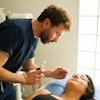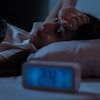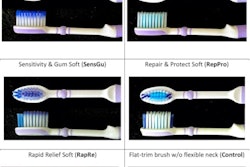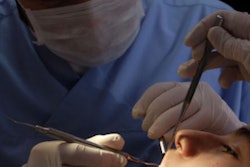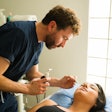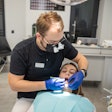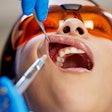
Numb chin syndrome (NCS) is a rare sensory neuropathy of the mental nerve. Because oral healthcare professionals are often the first to encounter patients with this condition, they should recognize and understand it, according to a recent study published in the Journal of the American Dental Association.
NCS is characterized by an altered perceived sensation, like numbness, near the mental nerve. The condition may manifest with additional symptoms like paresthesia, dysesthesia, hypoesthesia, or analgesia.
Symptoms begin in the mandibular incisors, canines, and surrounding areas, including the gingival tissue, mandibular symphysis region, and mucous membrane of the lower lip. Symptoms are often overlooked by healthcare professionals due to their innocent nature; however, NCS is frequently associated with malignancies. The symptom of a numb chin may forego the diagnosis, indicating progression or the recurrence of a diagnosed malignancy thought to be in remission.
"The trigeminal nerve may manifest as a transient idiopathic sensory neuropathy; however, when the symptom of numbness and the individual nerve affected is the mental nerve, then it should be considered an ominous sign of a malignant disease," wrote the authors, led by Dr. Cristina Perez of the University of Kentucky (JADA, May 26, 2022).
Reviewing NCS in the literature
While there is limited dental research on neuropathies involving the mental nerve, NCS is reported far more often in medical literature. However, because the area affected is within the area of expertise of oral healthcare professionals, the study authors believe that NCS should be recognized and understood by them as well. Overlooking the symptoms may lead to unnecessary dental treatment or conceal the root cause of numbness and lead to a loss of time in addressing a malignancy.
In the JADA study, approximately 2,400 articles were considered. After inclusion and exclusion criteria were applied, 102 articles remained. Of the 102 articles, eight were observational studies, 85 were case reports, and nine were letters to the editor with a case report. A total of 288 patients from all of the articles were included.
Of the published cases evaluated, NCS was associated with malignancy in up to 53% of patient cases. More than one-quarter (28%) of these patients initially consulted an oral healthcare professional with concern of a numb chin.
Patients most likely to have NCS were between the ages of 61 to 70 years old. Females are slightly more likely to develop NCS. The most frequently reported symptoms were numbness (100%), paresthesia (18%), and pain (17%). Anecdotally, patients reported increased frequency in lip biting, causing painless ulcers.
Nearly half (47%) of the NCS cases were associated with recurrent malignancies. The most commonly associated diagnoses were breast cancer (32%) and lymphoma and leukemia (24%).
Detecting NCS at the dental office
Since oral healthcare professionals are often the first to evaluate patients with NCS, they are in an ideal position to help in making a diagnosis. Awareness is crucial in being able to detect this condition in patients.
To avoid unnecessary treatment and to appropriately diagnose the condition, the authors say that taking a thorough history and conducting an examination are critical while emphasizing questions related to a patient's history of cancer. Patients should forego a detailed cranial nerve screening as well as an intraoral exam of the soft tissues and dentition.
"Many conditions like [numb chin syndrome] highlight the importance and significance of facilitating a paradigm shift in the mindset of how healthcare as a whole perceives the oral health care professional" the study authors wrote. "This shift requires all to be aware that the oral cavity is a readily available source of information related to the patient's overall systemic health."

